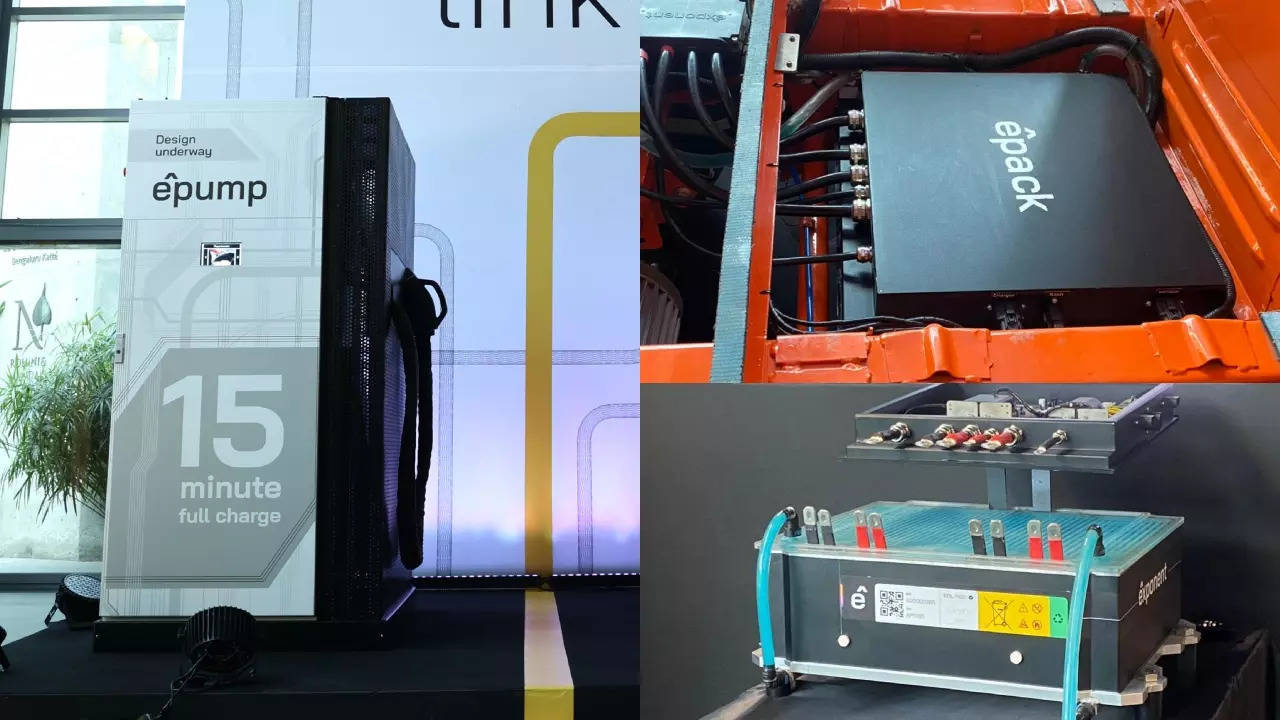The company said that it has worked on two major challenges that have hindered rapid charging on LFP (Lithium Iron Phosphate) cells – Lithium plating and extreme heat.
This revolutionary feat in rapid EV charging in India is achieved by Exponent’s Battery Management System (BMS), Virtual Cell Model, and Dynamic Charging Algorithms. The trio collaborates to prevent significant cell degradation caused by lithium plating during rapid charging.
Refrigerated water-enabled charging
The manufacturer has also tackled the issue of extreme heat generated during rapid charging with their HVAC system. It uses refrigerated water to cool every Li-ion cell in the company’s trademark battery pack, ensuring the temperature stays below 35°C in any ambient temperature condition. This will prevent the battery from excessive heating, which the company claims is 256 times higher than the industry average of 4-hour charging.
Tata Nexon EV long-term review: Just 2 flaws! | TOI Auto
Exponent, in its pilot in Bengaluru in the past three months, has claimed to have completed over 25,000 rapid charging sessions, covering more than 1,000,000 kms with over 200 EVs powered by its technology.
Recently, the company announced that TUV India, an independent testing laboratory, found only 13% degradation after 3,000 charging cycles of 15-minute rapid charging.
Stay tuned to TOI Auto for latest updates on the automotive sector and do follow us on our social media handles on Facebook, Twitter, and Instagram.


